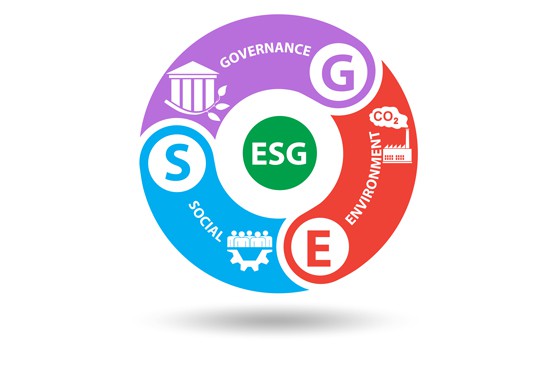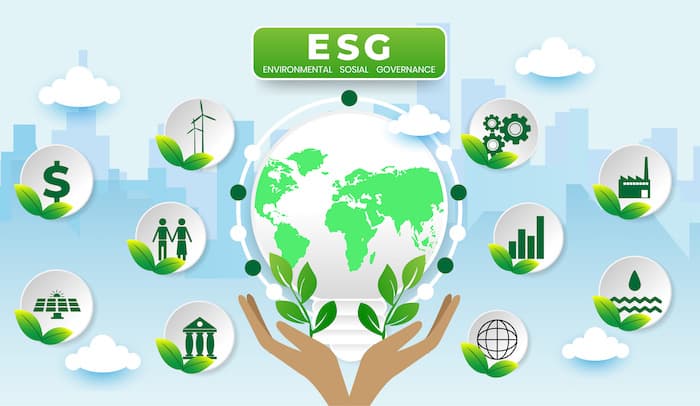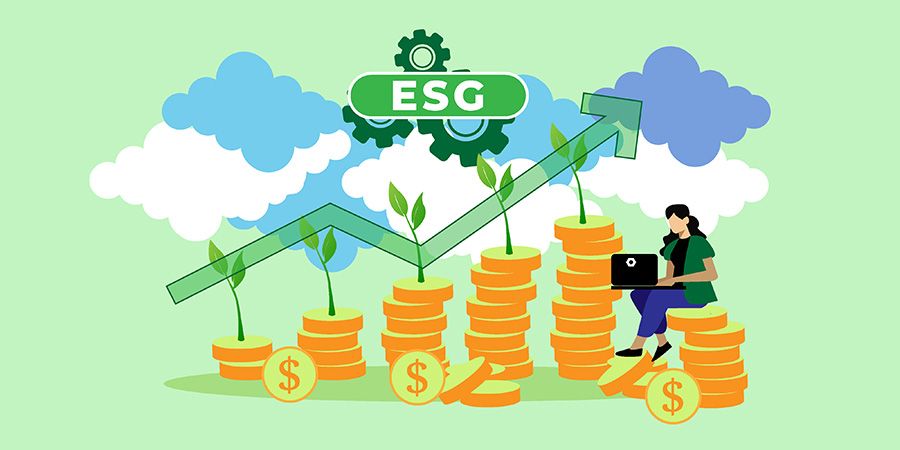ESG Investing Exposed: Balancing the Pros and Cons for Sustainable Wealth
Welcome to the real scoop on Benefits and Drawbacks of ESG Investing. If you’re looking to build wealth that lasts and does good, you’ve likely heard of ESG investing. It’s where your money meets morals. But let’s be real: not all that glitters is green. While you may earn cash and help the planet, it’s not just about picking stocks that sound eco-friendly. You’ll face some tough truths, like any strategy with high goals. Here, I’ll dive into these realities, sharing what shines and what might tarnish your portfolio. Get ready for a no-nonsense look at making your investments work for you and the world.
Understanding the Balance: Pros and Cons of ESG Investing
The Advantages of ESG Integration in Portfolios
Let’s dive into ESG investing. It’s like picking a winning team. But in this game, your team cares for the planet and people while making money. Imagine a company that treats workers well, avoids harm to the earth, and is run by a fair and smart team. This is what ESG criteria look at. Some say it’s a way to invest with a clear conscience.
Is ESG investing good?
Yes, it is. ESG investment helps you do good and possibly, do well financially. When ESG factors are in your portfolio, you’re looking at companies that plan for the long run. Studies show that firms with high ESG scores may outlast others and may have better returns.
Big investors love ESG. They think about the planet, people, and profits. They love teams that play fair and think ahead. They know that a healthy planet and happy people can make stable profits.
A green company might save more by using less energy. Or people might love a brand because it’s kind. This all can make stock prices go up. And ESG investing is growing fast. More money is flowing into funds that care about ESG. This could mean more options for you to pick from.
A company with strong governance might also dodge scandals. No stealing or cheating means less risk and less worry for you. These companies might also follow laws better. This means fewer fines or trouble from the government.
Challenges and Criticisms of ESG Investing Strategy
Now, ESG is not all sunshine and rainbows. It’s got its own rough patches.
What’s hard about ESG investing?
First, there’s no one way to rate ESG. Every group has its own idea of what’s good or bad. This can make things messy. One fund can think a company is green, but another might not agree.
Also, some folks use the ESG tag just to look good. This is a problem when you’re trying to pick a truly smart choice. It’s called “greenwashing,” where a company or fund seems ESG-friendly but isn’t really walking the walk.
Then there’s the debate if ESG really does lead to better returns. Some things are clear, like how a company treats the earth. But it’s harder to know if that will make you more money. Big wins aren’t guaranteed just because a company scores well on ESG.
Critics also say that picking stocks this way can be limiting. If you avoid some sectors, you might miss out on gains from those stocks. For example, oil companies might not meet ESG criteria, but they can still turn a profit.
And remember, even with all the ESG care, things can still go wrong. A company that looks great on paper can face unexpected problems. ESG investing can’t save you from every market storm. You need to be ready for the ups and downs that come with any investment.
To wrap it up, ESG investing asks us to care and act smart. It’s a balancing act. You must do your homework. Think about the pros and cons, and if ESG fits into your big plan. It’s not just about making money. It’s about shaping the world while growing your wealth.
Navigating ESG Performance Metrics and Market Expectations
Analyzing ESG Data for Accurate Investment Strategies
Let’s talk about how to pick the best ESG investments. First, we need good data. We want to see which companies do well by the planet and people. But, the ESG data must be on point, or we could choose wrong. Sorting true champs from fakes is key.
To find top ESG players, we look at how they treat their workers and use resources. We also check if they lead in their field. More and more, investors like us want companies that match our values. We use ESG scores to guide us. Still, always dig deeper than the score. A high ESG score sounds good, but what’s behind it counts more.
Comparing ESG Returns: Expectations vs. Reality
Now, the money talk. ESG investing aims to help the world and your wallet. Some say ESG means giving up some gains. Others cheer for ESG, saying it pays off more. Let’s set it straight. When you invest for good, you’re thinking long game. Over time, ESG wins can add up.
Being ESG-smart doesn’t mean slow profits. Many ESG funds compete well with regular investments. At times, they even do better. ESG investing can lower risks tied to bad events. Like oil spills or bad worker treatment. Lower risk can mean steadier returns for you. But remember, no investment is perfect. ESG or not, all investments can go up or down.
Staying sharp on ESG metrics helps us keep our money on the right track. We aim for green, in cash and in our conscience. But, it’s about balance. We weigh the pros and cons, just like in all money decisions. Let’s stay aware and choose wisely. ESG investing is our chance to make a mark with our money.
The Investor’s Dilemma: Ethical Considerations and Financial Outcomes
Prioritizing ESG Criteria: Financial Risks vs. Ethical Rewards
Investing isn’t just about making money. It’s about making a mark – a good one. You’re standing at a crossroad. Do you pick stocks just looking at the dollars? Or do you weigh the good, the bad, the eco-friendly?
Let’s think about the earth, folks, and folks on the earth. Yes, I mean ESG – environment, society, and how companies are run. It’s the new kid on the block, and guess what? It’s making waves.
When you plug ESG criteria into where you put your money, you might face risks. Like what? Well, ESG data – is it always right? Companies might look greener than they are. And don’t get me started on returns. Some say ESG funds can’t keep up with others. But hang on.
Hands down, the benefits are huge. Cleaner air, happier workers, bosses who actually play fair – it all adds up. People want to buy from companies that care. So, while ESG investing might seem rocky at first, it’s a smooth ride in the long term.
Long-Term Impact of ESG Practices on Portfolio Resilience
Now, let’s talk long game. ESG isn’t a pop quiz; it’s your final exam. It’s about lasting change. If a company’s green and clean, it’s made for the marathon, not a sprint. Disasters? Scandals? ESG-strong companies can dodge those bullets better than most.
So, your portfolio – let’s say it’s all about ESG. You’re in for less drama. While markets jump and fall, ESG can keep you steady. It’s like a good friend that’s got your back when things get rough.
Companies with top ESG scores, they’re thinking ahead. They cut down their carbon footprint and stay on the right side of the law. They keep their workers safe and happy. And you know what? Happy workers stick around. They make better stuff. Customers dig this.
But don’t just take my word for it. Look at the numbers, the trends. More and more cash is cruising into ESG funds. People are talking about it, tweeting about it. Big shots are sitting up and taking notice.
What’s the bottom line? ESG is turning heads because it makes sense – for the planet, for the people, and yeah, for your pocket too. Sure, it’s a bit of a tightrope. But with some smarts and a bit of heart, you’ll find the balance. And trust me, it’s worth it.
So, there you have it. You’ve got risks on one side, rewards on the other. The choice is yours. Go with just the flow of cash or ride the wave of change. Remember, with ESG, you’re not just building wealth; you’re building a better world. Choose wisely.
Future-Proofing Investments: ESG Trends, Compliance, and Shareholder Engagement
The Rise of ESG Investing Trends and their Impact on Market Dynamics
Let’s dive in. First off, ESG stands for Environmental, Social, and Governance. These are non-financial factors investors use to spot risks and growth. The trends in ESG investing are like a river that keeps rising. More money flows into funds that care about the planet, people, and fair play. This means big changes in how markets move.
Investors now peer through an ESG lens. They eye stocks and bonds, asking: “Is this company clean, caring, and well run?” If yes, in goes the cash. This push for doing good drives demand up for some stocks. At the same time, it drops for those not up to snuff.
More companies now race to score well on ESG. They cut carbon, back good causes, and clean up their act in the boardroom. Some do it to truly change. Others? Well, they just want to pull in that greenback tide.
Fostering Transparency and Shareholder Influence Through ESG Engagement
Next up, let’s chat about you and your power in all this. As an ESG-minded shareholder, your voice matters more than ever. By leaning on companies, you help shape how they behave.
When you, as an investor, hold shares, you’ve got rights. You can vote on big changes, and you’ve got a seat at the table, at least a tiny one. Use it to cheer on good ESG deeds and boo the bad. That’s shareholder engagement.
Firms know it’s showtime: Show plans for a cleaner future, show how they mind their workers, and show clean play up top. Fall short, and investors like you might just pull out. And that scares them.
This circle of cash flow, do-good goals, and your power? It’s changing the game. It’s steering cash into a future where finance cares not just for wealth, but for health – health of our world, our societies, and our conscience.
Keeping companies honest, it’s about clear reporting. They must tell the truth on their ESG game. They must show real moves, not just shiny promises. It’s about making sure they walk the talk.
That’s the ride we’re on. ESG investing isn’t perfect – but it’s a path. It’s carving a way toward wealth that mind more than the bottom line. It’s asking: Can we build riches that don’t cost the Earth?
You’re in it now, a player in a shifting game, with big choices ahead. Where you put your cash, who you back – it’s casting the tomorrow we all wake up to. From your pocket to your values, to the entire globe, ESG investing is a force. And as the trends rise, the smart money knows: It’s not just about the dollars – it’s about the sense they make, too.
In this post, we dove into the ESG investing world. We looked at its good and tricky sides and how it fits in a smart portfolio. We also explored how to sort ESG facts for better choices and weighed what we expect against the real deal.
We then tackled how choosing ESG affects not just cash but our world too. We pondered the lasting effect of ESG on how tough our portfolios are.
Lastly, we checked out how ESG is changing the game, pushing for clear info, and getting investors involved.
Here’s the deal: ESG isn’t just a trend; it’s the future of smart money moves. It hooks up ethics with cash to make a better tomorrow. Is it perfect? Not quite. But it’s a strong step to making profits we can all be proud of. Keep an eye on ESG—it’s here to stay and will shape how we all invest from now on.
Q&A :
What are the primary benefits of ESG investing?
ESG investing allows individuals to support companies that align with their values regarding environmental stewardship, social responsibility, and governance practices. Financial benefits include the potential for strong performance as ESG-compliant companies can be more resilient and long-term oriented. Additionally, ESG investing can help mitigate risk exposure by avoiding companies with poor sustainability practices that could lead to financial or reputational damage.
How might ESG investing impact financial returns?
The impact of ESG investing on financial returns is a complex matter. While some studies suggest that investing in companies with robust ESG practices can lead to similar or better returns compared to traditional investments, other research indicates a potential trade-off between ethical considerations and financial performance. However, many investors believe that ESG integration is key to identifying companies poised for long-term success, by knowing that they are less likely to face environmental or social scandals that could hinder their growth.
Are there any potential drawbacks to ESG investing?
Potential drawbacks of ESG investing include the possibility of limited investment choices, as ESG-screening may exclude some profitable companies. Additionally, there might be a lack of standardized ESG criteria, which can make it difficult to assess a company’s true ESG performance. There is also the risk of ‘greenwashing’, where companies may present themselves as more aligned with ESG practices than they actually are, potentially misleading investors.
How does ESG investing contribute to sustainability and social change?
ESG investing is seen as a powerful tool for promoting sustainability and social change, as it directs capital towards companies that are more likely to have a positive impact on the world. This may encourage companies to improve their environmental practices, treat their workers fairly, and to be governed in an ethical and responsible way. Over time, this can lead to industry-wide shifts as companies attempt to meet investor demand for high ESG standards.
Can ESG investing be integrated into all types of investment portfolios?
ESG investing can be integrated into nearly all types of investment portfolios, whether one prefers stocks, mutual funds, exchange-traded funds (ETFs), or bonds. Investors can apply ESG criteria to individual investments or to the investment process as a whole. As the market for ESG investments grows, the range of options for incorporating these principles is rapidly expanding, helping investors align their portfolios with their values without compromising on diversification.



